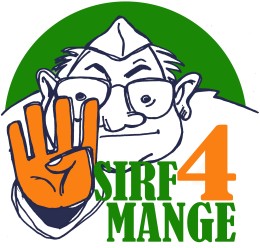The Lokpal and Lokayuktas Bill, 2011 was introduced in Lok Sabha on December 22, 2011. Some amendments were made to the Bill. The following table compares the Lokpal and Lokayuktas Bill, 2011, as introduced, with the version of the Bill passed on December 27, 2011 by the Lok Sabha.
| Clauses | Bill as introduced in Lok Sabha | Bill as passed by the Lok Sabha |
| Clause 1: Extent, application and commencement | Bill will be applicable to states. It may be notified on different dates for different states. | The Bill, once passed, shall be applicable to states if they give consent to its application. |
| Clause 2(o): Definition of public servants | Public servants includes PM, Ministers, MPs, group A, B, C and D officers, and certain private entities. | The Bill excludes public servants who are covered under the Army Act, 1950; the Air Force Act, 1950; the Navy Act, 1957 and the Coast Guard, 1978. |
| Clause 14(1)(a)(ii): Jurisdiction over PM | The Bill requires that an inquiry against the PM has to be approved by a three-fourths majority of the full bench of the Lokpal | The Bill requires that an inquiry against the PM has to be approved by a two-thirds majority of the full bench of the Lokpal. |
| Clause 20(5): Procedure for investigation (Lokpal) | Investigations have to be completed within a period of 6 months. This period may be extended by another 6 months for reasons to be recorded in writing. The Bill does not provide for further extensions. | The Bill allows an extension of 6 months at a time for reasons to be recorded in writing. It does not limit the number of occasions on which such extension may be allowed. |
| Clause 24: Action on investigation against PM, Minister, MPs. | The Lokpal shall send a copy of the investigation report to the Competent Authority (Lok Sabha, PM, Speaker or Chairman as the case may be). The Competent Authority shall table the report in the House and communicate the action taken to the Lokpal within 90 days. | Requirement of reporting to the Lokpal on action taken has been removed. |
| Clause 75: Jurisdiction of Lokayuktas | Religious trusts were excluded from the jurisdiction of Lokayuktas. | Religious institutions are included within the ambit of Lokayuktas. |
| Clause 81(5): procedure for investigation (Lokayuktas) | Investigations have to be completed within a period of 6 months. This period may be extended by another 6 months for reasons to be recorded in writing. The Bill does not provide for further extensions. | The Bill allows an extension of 6 months at a time for reasons to be recorded in writing. It does not limit the number of occasions on which such extension may be allowed. |
| Clause 85: Action on investigation against CM, Ministers, MLAs | The Lokayuktas shall send a copy of the investigation report to the Competent Authority (Legislative Assembly, CM, Speaker or Chairman as the case may be). The Competent Authority shall table the report in the House and communicate the action taken to the Lokayukats within 90 days. | Requirement of reporting to the Lokayuktas on action taken has been removed. |
| Sources: Lokpal and Lokayuktas Bill, 2011 as introduced and as passed by Lok Sabha; PRS Legislative Research. | ||
Kaushiki Sanyal and Harsimran Kalra
08 Jan 2012
The authors are with Parliamentary Research Service, India.
EDITORS' NOTE
As these amendments were moved and approved in the Lok Sabha (many other amendments were defeated as well), India Against Corruption, which has been largely responsible for bringing the Bill to Parliament and focusing public attention on its details, also weighed in with its own recommendations. Claiming that this Bill is weak, and that in its present form it would not do much to tackle corruption, Anna Hazare wrote an open letter to the Prime Minister listing 4 provisions, which at a minimum any Bill passed by the Parliament should contain.

Parallel to the amendments in Parliament, the India Against Corruption campaign has also listed its 4 minimum demands to make the new law effective.
-
The Lokpal and Lokayuktas must be able to suo moto initiate their own investigations, without a complaint or reference from anyone. It should also not be required to alert the accused through preliminary enquiry or hearing before filing an FIR (this is as recommended by the Standing Committee).
-
The Lokpal and Lokayuktas must be able to carry out independent investigations, through any one of the following mechanisms.
-
The anti-corruption branch of CBI should be merged into Lokpal, anti-corruption bureaus and state vigilance departments in state governments should be similarly merged into Lokayuktas,
OR
-
Lokpal and Lokayuktas should have their own investigative wings which should have exclusive jurisdiction over cases under Prevention of Corruption Act, (the Government's own previous draft of the Bill included this provision)
OR
-
The administrative and financial control over CBI should be with Lokpal and the appointment of CBI Director should be independent of any political control. The anti-corruption bureaus and state vigilance departments in state governments should be merged into Lokayuktas.
-
-
The selection of the Lokpal should be through the consensus of the selection panel. Selection committee should consist of Prime Minister, Leader of Opposition, two judges to be nominated by collegium of Supreme Court judges, CAG, CVC and CEC. Search committee to suggest nominees should consist of former Chief Justices, Former CAG, former, CVC and former CEC. A detailed selection procedure should be prescribed in the law itself.
-
The Lokpal/Lokayukta's jurisdiction should include Class C and D officers directly.

